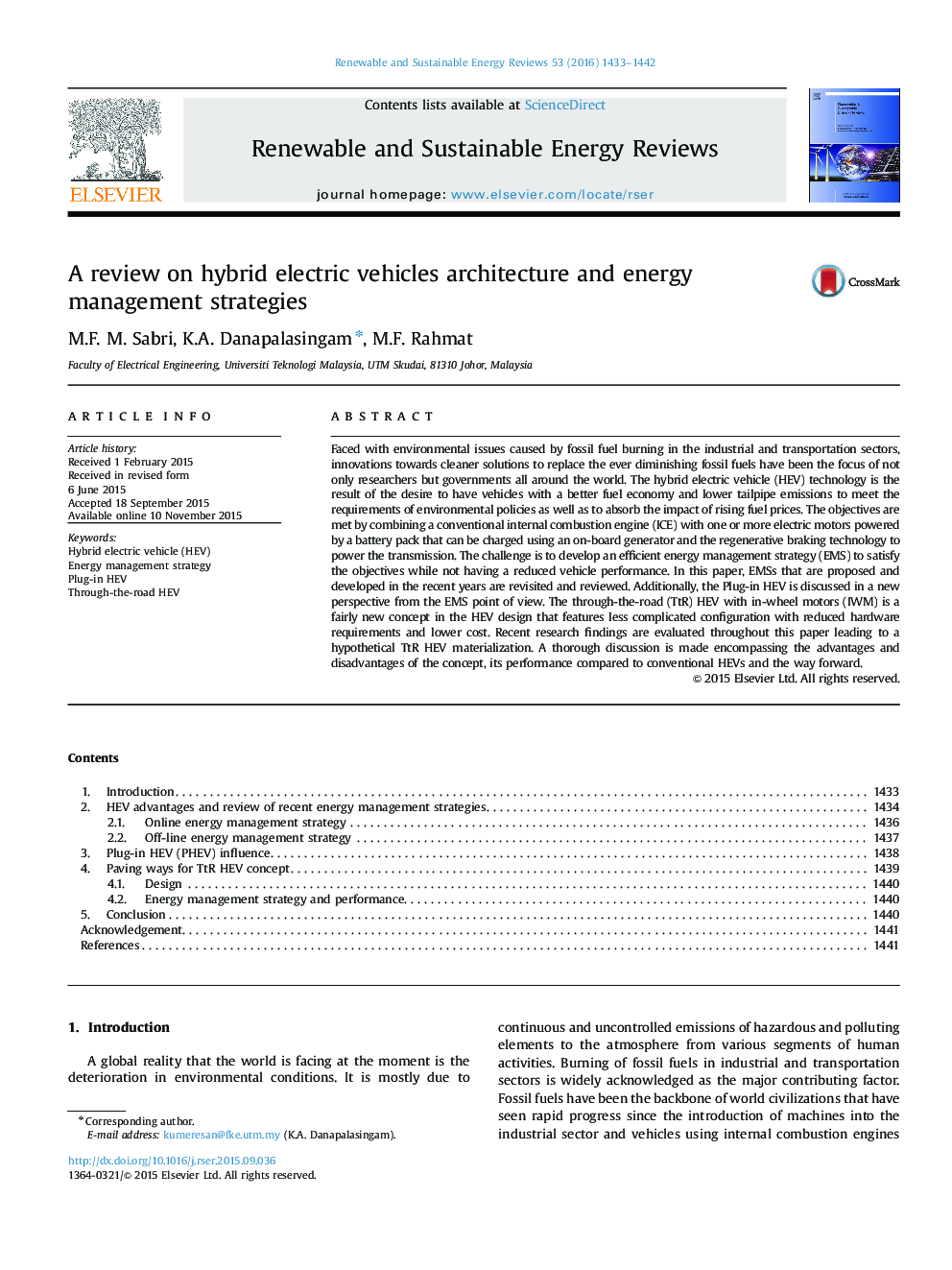| Article ID | Journal | Published Year | Pages | File Type |
|---|---|---|---|---|
| 8115955 | Renewable and Sustainable Energy Reviews | 2016 | 10 Pages |
Abstract
Faced with environmental issues caused by fossil fuel burning in the industrial and transportation sectors, innovations towards cleaner solutions to replace the ever diminishing fossil fuels have been the focus of not only researchers but governments all around the world. The hybrid electric vehicle (HEV) technology is the result of the desire to have vehicles with a better fuel economy and lower tailpipe emissions to meet the requirements of environmental policies as well as to absorb the impact of rising fuel prices. The objectives are met by combining a conventional internal combustion engine (ICE) with one or more electric motors powered by a battery pack that can be charged using an on-board generator and the regenerative braking technology to power the transmission. The challenge is to develop an efficient energy management strategy (EMS) to satisfy the objectives while not having a reduced vehicle performance. In this paper, EMSs that are proposed and developed in the recent years are revisited and reviewed. Additionally, the Plug-in HEV is discussed in a new perspective from the EMS point of view. The through-the-road (TtR) HEV with in-wheel motors (IWM) is a fairly new concept in the HEV design that features less complicated configuration with reduced hardware requirements and lower cost. Recent research findings are evaluated throughout this paper leading to a hypothetical TtR HEV materialization. A thorough discussion is made encompassing the advantages and disadvantages of the concept, its performance compared to conventional HEVs and the way forward.
Related Topics
Physical Sciences and Engineering
Energy
Renewable Energy, Sustainability and the Environment
Authors
M.F. M. Sabri, K.A. Danapalasingam, M.F. Rahmat,
